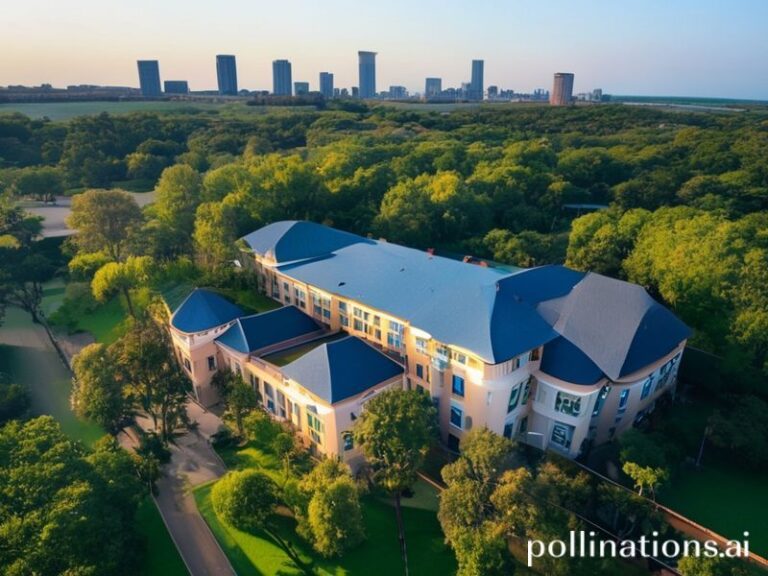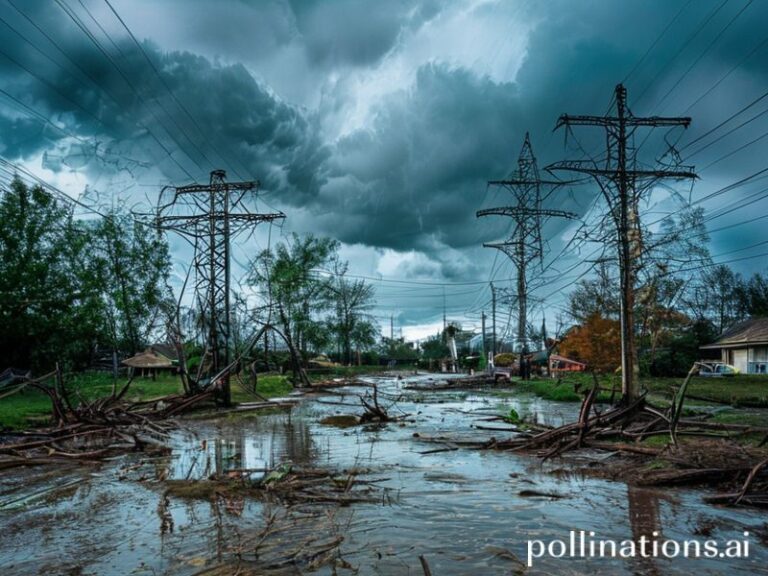Amazon’s $5.5M Global Settlement: A Pocket-Change Apology for Worker Misery, From Seattle to Shenzhen
Amazon’s $5.5 Million Mea Culpa: A Global Settlement in the Key of “Oops”
By A. Correspondent, somewhere between Luxembourg and a warehouse in Shenzen
The press release arrived on a Tuesday, which is when most corporate apologies are scheduled—late enough to miss the Monday news cycle, early enough to beat the Wednesday dump of quarterly earnings. Amazon, that smiling arrow from A to Z that has discreetly replaced half the planet’s retail economy, agreed to cough up $5.5 million to settle allegations that its warehouse productivity quotas were less “logistics optimization” and more “Black Mirror episode.” The settlement covers 30 jurisdictions across the United States, but its ripples are already lapping at shores from Manila to Manchester, reminding us that when the world’s largest cloud landlord stubs a toe, smaller nations feel the tremor.
The charges themselves read like a dystopian bingo card: failure to disclose legally required break times, punishing workers for bathroom trips longer than a sneeze, and allegedly maintaining an internal injury rate that would make an NFL team physician wince. Amazon, ever the polite disruptor, admitted no wrongdoing—because nothing says “we’re innocent” like writing a seven-figure check with six zeroes—while promising to “enhance transparency” and “revisit” its time-off-task metrics. Translation: the algorithm will now pause to ask, “Are you still alive?” before issuing the next pick order.
The international angle is where the plot thickens like congealed ramen. Most of the settlement money stays in U.S. state coffers, but the precedent travels friction-free across borders. German unions—who still remember when Amazon tried to hire security guards with neo-Nazi ties—are already waving the ruling in front of Berlin’s labor ministry. In India, where Amazon’s “fulfilment centres” (British spelling to sound less ominous) employ nearly the population of Iceland, opposition MPs are demanding similar audits. Meanwhile, in Brazil, local newspapers note that $5.5 million is roughly the amount the company saved last quarter by reclassifying delivery drivers as “micro-entrepreneurs,” a fiscal maneuver that would make a Swiss banker blush.
Observers in China, home to both Amazon’s biggest supply chain and its most existential competitor, Alibaba, responded with the diplomatic equivalent of a shrug-emoji. State media pointed out that Foxconn’s suicide nets were installed years ago, so welcome to the club. This is, of course, the same country where “996” (working 9 a.m. to 9 p.m., six days a week) is a brag-worthy lifestyle hashtag. When everyone’s dystopia is custom-tailored, schadenfreude becomes a universal language.
The broader significance lies less in the dollar figure—Amazon’s revenue last year was $524 billion, so this settlement is the corporate equivalent of losing a nickel in the sofa—and more in the symbolic concession that human beings are not merely ambulatory barcode scanners. Yet the settlement also underlines a bleak arithmetic: the cost of mistreating workers is still cheaper than the cost of not mistreating them. A few million here, a software patch there, and the conveyor belt keeps humming from Arkansas to Arcadia.
Financial markets, those sociopathic algorithms in suits, barely twitched. Amazon stock dipped 0.2 %, then recovered when analysts calculated that the payout equals roughly 14 minutes of AWS operating profit. If there’s a more succinct epitaph for late-stage capitalism, it’s probably hiding behind same-day shipping.
So what does the world learn from this trans-Pacific morality play? First, that “too big to fail” has quietly become “too big to behave.” Second, that labor protections remain a patchwork quilt sewn together by whichever regulator still has teeth. And third, that somewhere in Seattle, an executive just updated the risk-assessment spreadsheet to note: “Future settlements capped at pocket-change levels—continue as planned.”
In the end, the Amazon settlement isn’t a story of justice served; it’s a receipt for injustice discounted. The planet keeps spinning, packages keep arriving, and the barcode on the side of the box now reads: “Human cost not included.”







